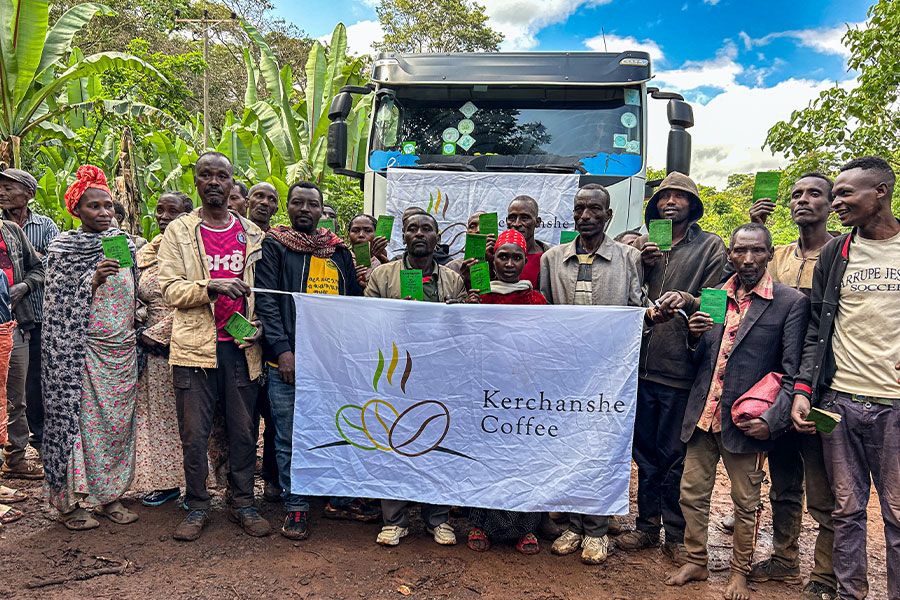
Fortune News | Oct 28,2023
Mar 4 , 2023
By Bjorn Lomborg
Vaccination is one of the true wonders of humanity, having saved more lives than any other medical invention and providing population-level control of diseases that once ran rampant. Yet, we often fail to appreciate how fundamentally they have changed human life for the better.
At the turn of the last century, infectious diseases caused more than one-third of all deaths in the United States, killing a greater proportion of people than cancer and heart disease do today. Vaccines have made common diseases like diphtheria, typhoid, measles and whooping cough virtually extinct.
Every year through the 20th Century, they made more than a million Americans sick. This number has dropped by 98pc.
This picture is even more dramatic in the poorer parts of the world. Smallpox was one of the world's most serious infectious diseases, killing indiscriminately for millennia before being finally eradicated in 1977 thanks to a vaccine. It killed over 300 million people; without the vaccine, this one disease might still kill five million people each year.
Measuring the currently dangerous infectious diseases, it is estimated global vaccinations are saving at least 3.8 million lives every year.
And yet, millions of children in the poorer parts of the world go without vaccines every year. This situation was exacerbated by the COVID pandemic that strained health systems and caused 25 million children to miss out on some or all of their vaccinations in 2021. That was 5.9 million more than in 2019 and the highest number since 2009.
In Ethiopia, the vaccination rate decreased by three percentage points in 2021 from 68pc two years earlier. That year, more than 1.3 million Ethiopian children were unvaccinated.
Recession, inflation, and many other global challenges caused us to lose focus on the vast potential that vaccines offer.
Global leaders worldwide promised in 2015 to dramatically reduce child deaths by 2030 as part of the Sustainable Development Goals (SDGs). This can only be achieved if we manage to ensure that all vaccine-preventable diseases are under control.
Unfortunately, there are far too many promises in the SDGs - 169 targets - giving them little difference between prioritizing any one of them and having none. The SDGs have placed core targets such as increased vaccination, eradicating infant mortality, and providing primary education on the same footing as well-intentioned but more peripheral targets like boosting recycling and promoting lifestyles in harmony with nature.
Because the SDGs promise too much, we fail to achieve any of the promises. This year marks halftime for achieving these goals, yet we are nowhere near halfway. On the current trajectory (and not including the backsliding during COVID), we will accomplish the SDG promise on vaccines more than half a century late.
We need to identify and prioritize our most crucial goals. The Copenhagen Consensus, with several Nobel laureates and more than a hundred leading economists, has done exactly that: We have identified where each Birr can make the most significant impact.
Researchers from Johns Hopkins University and the International Vaccine Access Center (IVAC) have documented the costs and benefits of increasing global investment in vaccinations. If we continue with our current level of spending, we will continue to save 3.8 million lives from avoidable diseases between now and 2030.
But things would get even better if we were to increase that coverage just slightly, nudging it upwards as has happened consistently over the past decades. Over the next eight years beginning in 2023, we could save an additional 4.1 million lives.
This would have actual costs. The costs climb as we expand vaccination campaigns to harder-to-reach places and families who have so far not engaged with vaccination campaigns. It may be necessary to copy the example of India, which uses food incentives and vaccination 'camps' to ensure greater coverage.
Yet, the additional financial cost will still be a relatively modest 1.5 billion dollars per year and about 200 million dollars in additional time costs. Saving half a million lives each year makes this an incredible opportunity.
Using standard economic valuations across time and considering that avoided impacts closer to now are more critical, such a benefit is worth about 170 billion dollars annually. Each dollar spent will generate 101 dollars of social benefits. Achieving a 100-to-one value for money is a phenomenal return on a policy to increase global vaccination.
Of all the hundreds of promises the world has made in the SDGs - most of which will never be delivered - a few stand out for their incredible effectiveness. Increased vaccination is one of these policies. If we want to achieve optimum good for the world, we must step up and ensure that resources are allocated to increase vaccinations.
PUBLISHED ON
Mar 04,2023 [ VOL
23 , NO
1192]


Fortune News | Oct 28,2023

Radar | May 13,2023

Advertorials | May 30,2025

Fortune News | Jun 08,2025

Radar | Nov 02,2019

Viewpoints | Mar 11,2023

Radar | May 29,2021

Viewpoints | Mar 04,2023

Commentaries | Feb 10,2024

Radar | Nov 02,2019

My Opinion | 131497 Views | Aug 14,2021

My Opinion | 127853 Views | Aug 21,2021

My Opinion | 125831 Views | Sep 10,2021

My Opinion | 123461 Views | Aug 07,2021

Dec 22 , 2024 . By TIZITA SHEWAFERAW
Charged with transforming colossal state-owned enterprises into modern and competitiv...

Aug 18 , 2024 . By AKSAH ITALO
Although predictable Yonas Zerihun's job in the ride-hailing service is not immune to...

Jul 28 , 2024 . By TIZITA SHEWAFERAW
Unhabitual, perhaps too many, Samuel Gebreyohannes, 38, used to occasionally enjoy a couple of beers at breakfast. However, he recently swit...

Jul 13 , 2024 . By AKSAH ITALO
Investors who rely on tractors, trucks, and field vehicles for commuting, transporting commodities, and f...

Jun 28 , 2025
Meseret Damtie, the assertive auditor general, has never been shy about naming names...

Jun 21 , 2025
A well-worn adage says, “Budget is not destiny, but it is direction.” Examining t...

Jun 14 , 2025
Yet again, the Horn of Africa is bracing for trouble. A region already frayed by wars...

Jun 7 , 2025
Few promises shine brighter in Addis Abeba than the pledge of a roof for every family...

Jun 29 , 2025
Addis Abeba's first rains have coincided with a sweeping rise in private school tuition, prompting the city's education...

Jun 29 , 2025 . By BEZAWIT HULUAGER
Central Bank Governor Mamo Mihretu claimed a bold reconfiguration of monetary policy...

Jun 29 , 2025 . By BEZAWIT HULUAGER
The federal government is betting on a sweeping overhaul of the driver licensing regi...

Jun 29 , 2025 . By NAHOM AYELE
Gadaa Bank has listed 1.2 million shares on the Ethiopian Securities Exchange (ESX),...